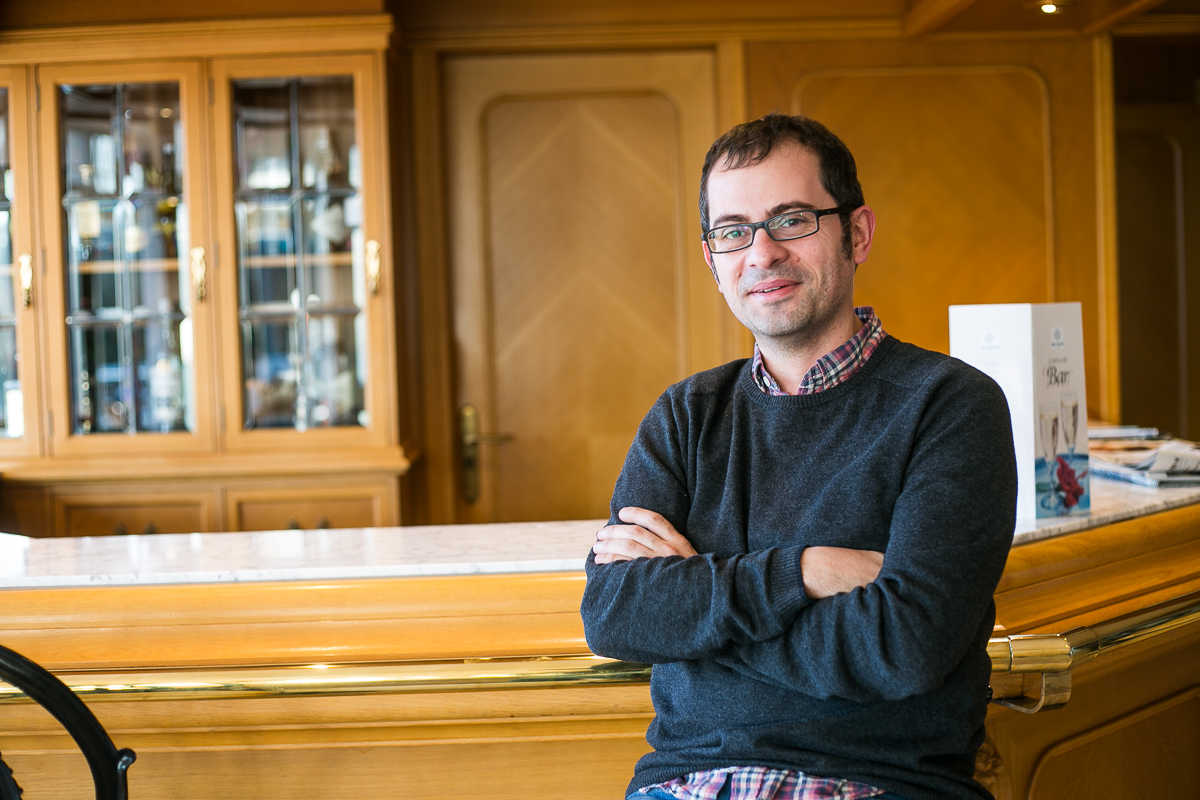Collective residencies / HUMANITIES II / Olot
LLÀTZER GARCIA
From Monday, 24 October 2016 to Monday, 7 November 2016

Bio
Llàtzer Garcia (Girona, 1981) studied acting at the Theater College in Barcelona, and dramaturgy in Sala Beckett and the Theater Institute, both in Barcelona. He has worked as a director assistant and as an actor. He has written, among others, the following plays: Au revoir, Lumière (2003, Ciutat de Sagunt Award), Sweet Nothing (2007, Ciutat d’Amposta Award), Vent a les veles (2008, Marqués de Bradomín Award), Ens hauríem d’haver quedat a casa (2010, Festival Temporada Alta Festival, Sala Muntaner), Kafka a la ciutat de les mentides (2011, Grec Festival) La terra oblidada (2012, Ciutat de Gandia Award. Sala Flyhard), La pols (2014, Sala Flyhard, La Villarroel. Barcelona Critics Award, Serra d’Or Critics Award), Sota la ciutat (2015, Temporada Alta Festival. Teatre Lliure) and L’última nit del món (2016. Sala Flyhard). He has also written the short pieces Doppelgänger, Ara em toca a mi and Jericó. Some of his works have been translated into English and Spanish, and most of them have been published. He is the dramaturg and director of the company Arcàdia.
Project
After a six-month break, I’ve started to work again for my theater company, Arcàdia. Our next play will be staged at the new Sala Beckett, as part of the Grec Festival in Barcelona. The play will not be based in any original text of mine but on the rewriting of two contemporary classics: Look back in anger, by John Osborne, and Sweet Birth of Youth, by Tennessee Williams.
Both plays really go together. Both have anger and poetry. Both deal with outsiders that live in a world that is falling apart. Both are chamber plays, almost claustrophobic. Both present characters that are neither able to love, nor to be loved. Both really relate to the current times.
It is not a matter of adapting their work, but of rewriting it in a very free manner. I will try to take the essence of the original plays in order to write a new one. This is for me the only way to face these two stories of great characters.
I’m back in Barcelona
I’m back in Barcelona. I’m back to writing (or at least trying to) at my desk. It’s a flat with very little natural light. I miss room 115 of the Hotel Riu Fluvià. And the strolls through Olot or on roads that could take me to just about anywhere. And the long dinners we had where, by and large, all the residents were present. How we talked about everything under the sun at those dinners. About the situation in Catalonia—making the most of the fact that Andrew Dowling, an expert on the subject with the benefit of his outside-in perspective; about Proust and his great In Search of Lost Time, as Valèria Gaillard, who is translating it into Catalan, was one of the residents this month; about the impossibility of Trump winning the American election, etc. Most of the time we spoke in English—a language which I cannot claim to be fluent in—, but despite this, I was able to do a pretty good job following the conversation. Or maybe not, and I just think so. I prefer to think so.
The project that I was working on at Faber and which, if everything goes well, will be performed this summer, has been evolving in unexpected ways. At first, it was going to be a sort of new version of two theatre texts which are already considered as contemporary classics: Look Back in Anger by John Osborne (which was titled Amb la ràbia al cos here on the home front) and Sweet Bird of Youth by Tennessee Williams. It was going to be a kind of double bill. But as soon as I stepped foot on the lands of Olot, an old story that has been on the back burner for some time now came to mind. A story that has many links to the two plays that I wanted to adapt, especially to the play by Williams. This is surely because the underlying themes are similar: the loss of innocence, the family as a prison, the impossibility of understanding across different generations, the return to a home that no longer feels like yours, etc. A story about people who, at one point in their lives, decided to leave the world behind—completely cutting themselves off from their families, with their roots, and creating their own world in community. The initial double bill turned into this single work entitled Els nens desagraïts (Ungrateful Children).
This story has a lot to do with my childhood because it involves things that I’ve seen, things that I’ve experienced. In the same way that Olot—particularly El Carrilet—also reminds me of my childhood. As I child, I had ridden my bicycle on it many times with my father or friends. We usually started off from Girona—where we were from—and we’d do quite a few kilometres. Obviously, we rarely ever got as far as Olot. These days, I have also ridden my bicycle many times. And many distant images, many conversations, come to mind.
I have wonderful memories of Faber. Not only of the residents—David, Andrew, Roy, Valèria, Iván and Kristiina—, but also of all the people who are taking this fantastic project forward: Àgata, Albert, and particularly, Francesc. I also bring with me the first volume of Proust’s work and the immense urge to discover his world, thanks to Valèria.
And the heartfelt wish that Faber will be around for many years.
